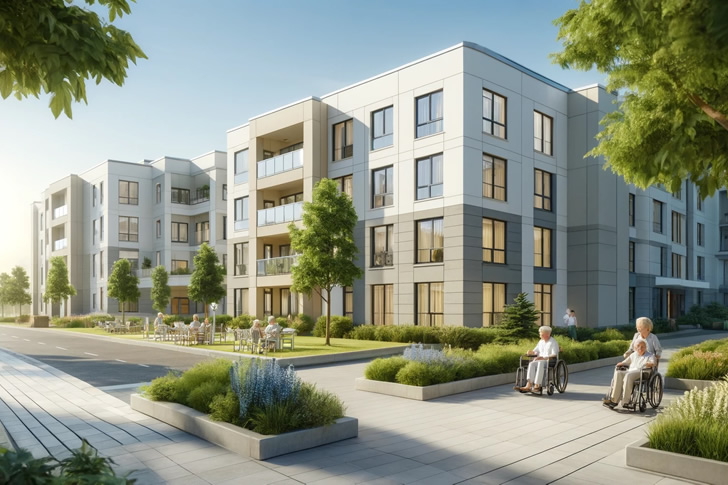How to Find Cheap Senior Apartments: A Guide for Budget-Conscious Retirees
Finding budget-friendly housing is a critical concern for many seniors, especially those living on a fixed income. Senior apartments offer a fantastic housing option that caters to the unique needs of the elderly, providing community, accessibility, and often, additional amenities. However, affordability can be a significant hurdle. This guide aims to navigate the complex landscape of finding cost-effective senior apartments without sacrificing quality and safety.

Understanding Senior Apartments
Senior apartments are residential communities explicitly designed for those age 55 or older, although some communities may set the minimum age at 62. These apartments vary widely in terms of amenities and services, ranging from basic units in low-cost areas to luxury apartments with a full suite of services like housekeeping, meal plans, and transportation.
Types of Senior Apartments
- Independent Living Apartments: These are for seniors who can live independently but prefer living in a community with people of their age. Often, these facilities include some amenities such as community dining rooms, recreational spaces, and organized social activities.
- Assisted Living Apartments: Designed for seniors who need assistance with daily activities like bathing, dressing, and medication management. These apartments offer more comprehensive services, including 24-hour supervision and medical assistance.
- Affordable Housing Programs: Many senior apartments are part of affordable housing programs funded by federal or state governments, which offer reduced rents to low-income seniors.
Finding Affordable Options
1. Government Subsidized Housing Programs
One of the primary resources for finding affordable senior apartments is through government-subsidized housing programs. The U.S. Department of Housing and Urban Development (HUD) offers several programs:
- Section 202 Supportive Housing for the Elderly: Specifically designed for seniors, this program provides housing that includes a subsidy to help make rent affordable and may also offer transportation and access to supportive services.
- Section 8 Housing Choice Voucher: This program allows seniors to find their own housing (including senior apartments) and use a voucher to pay for part or all of their rent. Eligibility is based on income, and participants typically pay 30% of their monthly income towards rent.
- Low-Income Housing Tax Credit (LIHTC) properties: These properties offer reduced rents as they receive a tax credit for renting at below-market rates.
2. Non-Profit Organizations
Many non-profit organizations operate senior housing facilities that offer reduced rents. These organizations often have eligibility requirements based on income, age, or disability status.
3. State and Local Programs
Many states and municipalities have their own programs designed to assist seniors in finding affordable housing. These can vary widely from place to place, so it’s essential to contact local housing authorities or aging agencies to find out what might be available in your area.
4. Cooperative Housing
Senior cooperative housing is another affordable option where residents own shares in the housing community and participate in its management. While the upfront cost can be higher due to the purchase of shares, monthly expenses are often lower than other senior living options.
Important Considerations When Searching for Senior Apartments
Cost
Affordability is about more than just rent. Consider utilities, transportation, and other living expenses. Make sure to understand what is included in the rent and what additional costs you might incur.
Location
The location of senior apartments affects not only the cost but also the quality of life. Proximity to medical facilities, public transportation, and social amenities can greatly influence living experiences.
Amenities and Services
While amenities should not be the sole focus, they are important. Basic amenities like laundry services, security features, and accessibility options are non-negotiable for many seniors.
Reviews and Reputation
Before deciding on an apartment, research its reputation. Look for reviews from current and past residents, and consider visiting the site in person or virtually.
Lease Terms
Understand the lease agreement thoroughly. Check for clauses related to lease termination, rent increases, and maintenance responsibilities.
Conclusion
Finding affordable senior apartments requires diligence, patience, and a lot of research. By exploring government programs, non-profit organizations, and other local resources, seniors can find suitable housing that fits their budget. Remember, the goal is not just to find the cheapest option but to find a safe, comfortable, and welcoming community that meets your needs as you age. With the right approach, the journey to finding your ideal senior apartment can be less daunting and more rewarding.







Recent Comments